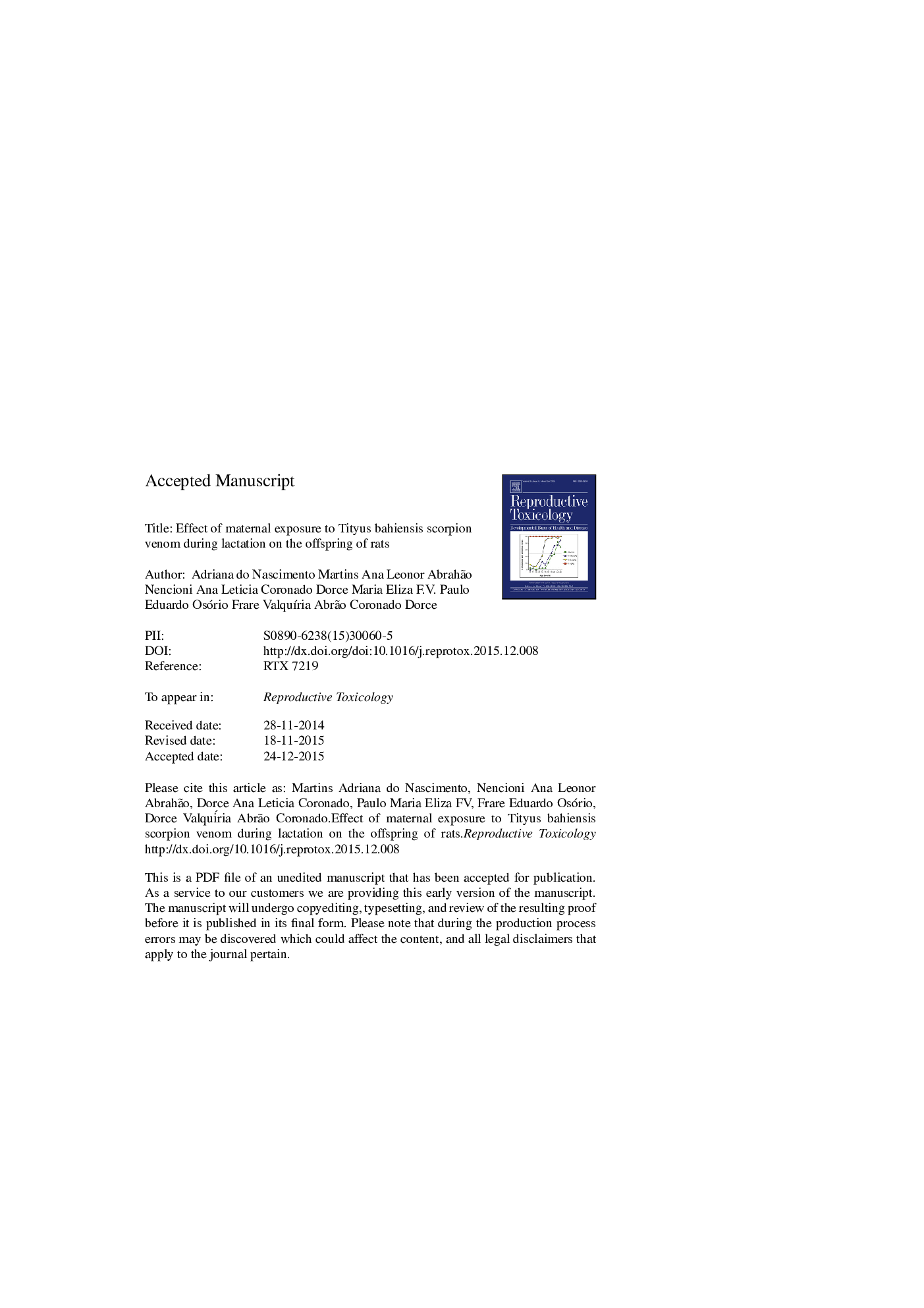| Article ID | Journal | Published Year | Pages | File Type |
|---|---|---|---|---|
| 5858118 | Reproductive Toxicology | 2016 | 40 Pages |
Abstract
Scorpion stings are a public health problem in Brazil and lactating women may be affected. We aimed to study the effects of Tityus bahiensis venom in the offspring of rats treated during lactation. Mothers received a subcutaneous injection of saline (1.0 ml/kg) or venom (2.5 mg/kg) or an intraperitoneal injection of LPS (lipopolysaccharide) (100 μg/kg) on postnatal (PN) days 2 (PN2), 10 (PN10) or 16 (PN16). The offspring were evaluated during the childhood and adulthood. Pups showed a delay in physical and reflexological development, and a decrease in motor activity. Adults displayed low anxiety. There was an increase in the number of viable neuronal cells in hippocampal areas CA1 and CA4. The levels of IFN-γ (interferon-gamma) increased in the experimental groups. Several of the parameters analyzed showed important differences between the sexes. Thus, the scorpion venom affects the development in the offspring of mothers envenomed during the lactation.
Related Topics
Life Sciences
Environmental Science
Health, Toxicology and Mutagenesis
Authors
Adriana do Nascimento Martins, Ana Leonor Abrahão Nencioni, Ana Leticia Coronado Dorce, Maria Eliza F.V. Paulo, Eduardo Osório Frare, ValquÃria Abrão Coronado Dorce,
